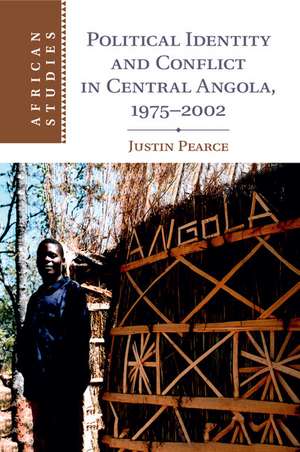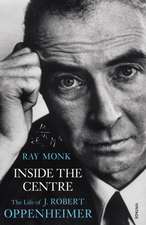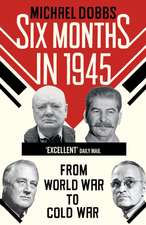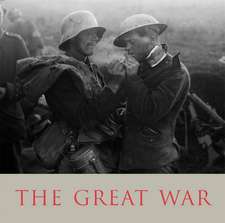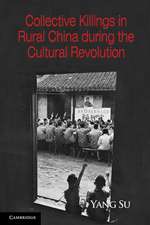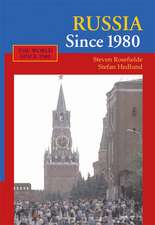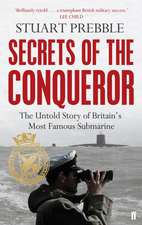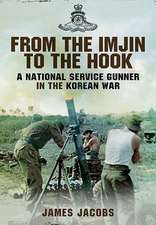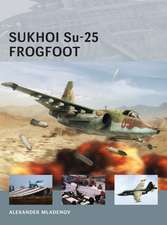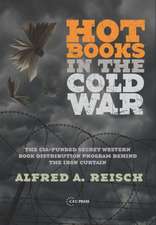Political Identity and Conflict in Central Angola, 1975–2002: African Studies, cartea 134
Autor Justin Pearceen Limba Engleză Paperback – 7 feb 2018
| Toate formatele și edițiile | Preț | Express |
|---|---|---|
| Paperback (2) | 280.15 lei 6-8 săpt. | |
| Cambridge University Press – 7 feb 2018 | 280.15 lei 6-8 săpt. | |
| Cambridge University Press – aug 2018 | 281.49 lei 6-8 săpt. | |
| Hardback (1) | 717.55 lei 6-8 săpt. | |
| Cambridge University Press – iul 2015 | 717.55 lei 6-8 săpt. |
Din seria African Studies
-
 Preț: 275.85 lei
Preț: 275.85 lei -
 Preț: 178.45 lei
Preț: 178.45 lei -
 Preț: 177.35 lei
Preț: 177.35 lei -
 Preț: 204.11 lei
Preț: 204.11 lei -
 Preț: 202.11 lei
Preț: 202.11 lei -
 Preț: 223.29 lei
Preț: 223.29 lei -
 Preț: 310.62 lei
Preț: 310.62 lei -
 Preț: 342.31 lei
Preț: 342.31 lei - 11%
 Preț: 696.80 lei
Preț: 696.80 lei - 11%
 Preț: 693.36 lei
Preț: 693.36 lei -
 Preț: 238.11 lei
Preț: 238.11 lei -
 Preț: 177.35 lei
Preț: 177.35 lei -
 Preț: 208.26 lei
Preț: 208.26 lei - 23%
 Preț: 326.14 lei
Preț: 326.14 lei - 15%
 Preț: 459.92 lei
Preț: 459.92 lei - 15%
 Preț: 295.49 lei
Preț: 295.49 lei - 17%
 Preț: 296.11 lei
Preț: 296.11 lei - 18%
 Preț: 1001.24 lei
Preț: 1001.24 lei -
 Preț: 439.78 lei
Preț: 439.78 lei -
 Preț: 446.37 lei
Preț: 446.37 lei - 16%
 Preț: 301.75 lei
Preț: 301.75 lei - 30%
 Preț: 770.26 lei
Preț: 770.26 lei -
 Preț: 110.05 lei
Preț: 110.05 lei -
 Preț: 486.80 lei
Preț: 486.80 lei - 18%
 Preț: 995.09 lei
Preț: 995.09 lei - 18%
 Preț: 703.45 lei
Preț: 703.45 lei -
 Preț: 322.12 lei
Preț: 322.12 lei - 18%
 Preț: 1106.02 lei
Preț: 1106.02 lei -
 Preț: 480.24 lei
Preț: 480.24 lei - 18%
 Preț: 998.56 lei
Preț: 998.56 lei - 21%
 Preț: 182.41 lei
Preț: 182.41 lei -
 Preț: 489.10 lei
Preț: 489.10 lei -
 Preț: 477.72 lei
Preț: 477.72 lei - 25%
 Preț: 853.03 lei
Preț: 853.03 lei - 21%
 Preț: 179.93 lei
Preț: 179.93 lei - 31%
 Preț: 762.16 lei
Preț: 762.16 lei -
 Preț: 321.93 lei
Preț: 321.93 lei - 18%
 Preț: 710.05 lei
Preț: 710.05 lei -
 Preț: 273.50 lei
Preț: 273.50 lei - 16%
 Preț: 311.03 lei
Preț: 311.03 lei -
 Preț: 287.48 lei
Preț: 287.48 lei -
 Preț: 286.69 lei
Preț: 286.69 lei - 11%
 Preț: 694.23 lei
Preț: 694.23 lei - 25%
 Preț: 541.50 lei
Preț: 541.50 lei
Preț: 280.15 lei
Nou
Puncte Express: 420
Preț estimativ în valută:
53.61€ • 58.22$ • 45.03£
53.61€ • 58.22$ • 45.03£
Carte tipărită la comandă
Livrare economică 22 aprilie-06 mai
Preluare comenzi: 021 569.72.76
Specificații
ISBN-13: 9781107438934
ISBN-10: 1107438934
Pagini: 204
Dimensiuni: 152 x 230 x 10 mm
Greutate: 0.27 kg
Editura: Cambridge University Press
Colecția Cambridge University Press
Seria African Studies
Locul publicării:New York, United States
ISBN-10: 1107438934
Pagini: 204
Dimensiuni: 152 x 230 x 10 mm
Greutate: 0.27 kg
Editura: Cambridge University Press
Colecția Cambridge University Press
Seria African Studies
Locul publicării:New York, United States
Cuprins
Introduction; 1. Anti-colonial mobilisation and the Portuguese exodus; 2. UNITA, 1975–6: from the cities to the 'Long March'; 3. The MPLA and urban state making; 4. Migration, relocation and identity; 5. UNITA in the Central Highlands, 1976–91; 6. UNITA at Jamba; 7. The war of the cities; 8. UNITA's last redoubts; 9. The Luena agreement and politics today.
Recenzii
'This book, based on difficult and path-breaking fieldwork and acute analytical skills, gives a jolt to much of the literature on violent conflicts and on politics in, especially, Africa: it brings questions of political identity, how it is formed and sustained, how it evolves, how it relates to violent conflict, back into the foreground and it refreshes ideas of national identity at the same time.' Christopher Cramer, School of Oriental and African Studies, University of London
'This book is exceptional because of the hundreds of interviews Justin Pearce conducted with peasants loyal to both warring parties. Moreover, he is unique because he does not show a scintilla of preference between the MPLA and UNITA. Furthermore, he covers an interesting interregnum between the end of the war in 2002 and today.' Gerald Bender, Associate Professor Emeritus, University of Southern California
'An essential reading for scholars and anyone interested in modern Angola. In this timely contribution, Justin Pearce's penetrating analysis of nationalism and identity among the Ovimbundu from 1975 to 2002 shifts the focus from the conflict between MPLA and UNITA to how the population in the urban and rural areas of the central regions perceived their own interests and acted on them.' Linda Heywood, Boston University
'Justin Pearce's book sheds new light on the complexity of the stakes of the Angolan postcolonial civil war. It shows, convincingly, how the intertwining of political and ideological identities, communitarian and individual stakes, as well as Cold War proxy interests, fuelled, in a very complex way, this long conflict.' Jean-Michel Mabeko-Tali, Howard University, Washington DC
'This is an exceptional book. Not only is this the finest study available on the politics of allegiance during the Angolan civil war, one of Africa's deadliest and longest, and also least understood; it is also a pivotal contribution to the study of conflict, nation building, and identity formation in the post-Cold War period.' Ricardo Soares de Oliveira, University of Oxford
'Studies on identity are not rare in Angola. Urban identity, or Angolanidade, has been the source of a number of scholarly undertakings. What is highly commendable in Pearce's book is his treatment of another form of identity that has received less attention: rural identity. This book is particularly concerned with the motivations of those who joined and fought for UNITA. The outcome is, then, a discussion on political identity that avoids the traps of ethnic essentialism and embraces a concept of identity that is contingent and strategic. In this regard, this book is about the agency of those who fought for UNITA.' António Tomás, University of Stellenbosch, South Africa
'Justin Pearce's work on political identity adds to the group of recent books on Angola that have broken new ground and shed new light on conflict, politics, identity and the dynamics of rule in Angola.' Africa - News and Analysis (africajournalismtheworld.com)
'This book is exceptional because of the hundreds of interviews Justin Pearce conducted with peasants loyal to both warring parties. Moreover, he is unique because he does not show a scintilla of preference between the MPLA and UNITA. Furthermore, he covers an interesting interregnum between the end of the war in 2002 and today.' Gerald Bender, Associate Professor Emeritus, University of Southern California
'An essential reading for scholars and anyone interested in modern Angola. In this timely contribution, Justin Pearce's penetrating analysis of nationalism and identity among the Ovimbundu from 1975 to 2002 shifts the focus from the conflict between MPLA and UNITA to how the population in the urban and rural areas of the central regions perceived their own interests and acted on them.' Linda Heywood, Boston University
'Justin Pearce's book sheds new light on the complexity of the stakes of the Angolan postcolonial civil war. It shows, convincingly, how the intertwining of political and ideological identities, communitarian and individual stakes, as well as Cold War proxy interests, fuelled, in a very complex way, this long conflict.' Jean-Michel Mabeko-Tali, Howard University, Washington DC
'This is an exceptional book. Not only is this the finest study available on the politics of allegiance during the Angolan civil war, one of Africa's deadliest and longest, and also least understood; it is also a pivotal contribution to the study of conflict, nation building, and identity formation in the post-Cold War period.' Ricardo Soares de Oliveira, University of Oxford
'Studies on identity are not rare in Angola. Urban identity, or Angolanidade, has been the source of a number of scholarly undertakings. What is highly commendable in Pearce's book is his treatment of another form of identity that has received less attention: rural identity. This book is particularly concerned with the motivations of those who joined and fought for UNITA. The outcome is, then, a discussion on political identity that avoids the traps of ethnic essentialism and embraces a concept of identity that is contingent and strategic. In this regard, this book is about the agency of those who fought for UNITA.' António Tomás, University of Stellenbosch, South Africa
'Justin Pearce's work on political identity adds to the group of recent books on Angola that have broken new ground and shed new light on conflict, politics, identity and the dynamics of rule in Angola.' Africa - News and Analysis (africajournalismtheworld.com)
Notă biografică
Descriere
This book examines the internal politics of the war that divided Angola for over a quarter-century after its independence.
